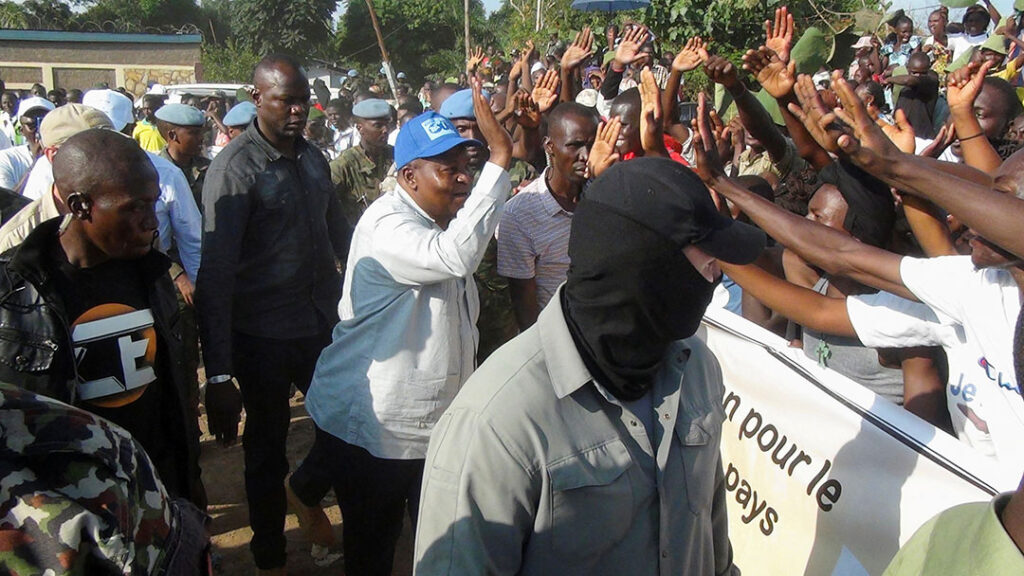ADF STAFF
In Africa, the Russian mercenary outfit formerly known as the Wagner Group left a trail of allegations of massacres, executions, torture, rape and theft.
Because Russia has partnered with a handful of repressive authoritarian regimes in Central Africa and the Sahel, none of the claims of war crimes and human rights abuses has been fully investigated.
“Russia — through Wagner — has contributed to the establishment and consolidation of authoritarian regimes that rely on violence and human rights violations to suppress discontent,” Guinean researcher Ansoumane Samassy Souare concluded in a May 20 article for the Wilson Center think tank.
Souare, a program officer in charge of early warning and conflict prevention at the West Africa Network for Peacebuilding (WANEP), fears that the Wagner Group’s bloody legacy will live on in Russia’s rebranded mercenary group called the Africa Corps and in the Russian military instructors who train troops from national militaries on the continent.
“There is a surge in brutality and repression against civilians and suspected terrorists in West Africa,” Souare wrote, citing WANEP data that showed “an alarming increase in protest and demonstration-related civilian deaths and injuries due to security force crackdowns on civilians.”
Since 2018, Russia’s shadowy mercenaries and its official military trainers have worked closely with security forces in the Central African Republic, Mali and Burkina Faso — in most cases leading or supporting military operations against civilians they suspect of being terrorists or of aiding extremist groups.
The result has been reports and evidence of human rights violations.
At least 1,800 civilians have been killed in the time frame of Wagner’s operations across Africa since 2017, according to the Armed Conflict Location & Event Data Project (ACLED).
In Mali alone, ACLED data shows that violent incidents involving insurgent groups have nearly tripled since 2021, when the Wagner Group began operating in the country.
Experts say Russia’s military partnerships on the continent are designed to protect authoritarian regimes rather than to address the kind of broad insecurity faced by civilians.
“They seem to be trying to protect the capital cities, protect the palaces, protect the group of officers who are running the country,” Africa Center for Strategic Studies researcher Mark Duerksen told ADF. “That’s not providing security for citizens.”
This year, internal Russian government documents examined by experts revealed how the Kremlin has described its military and economic engagement in Africa as a “regime survival package.”
One of those experts, Oleksandr Danylyuk, said Russia’s support package comes in exchange for access to strategically important natural resources, such as gold, diamonds, uranium and lithium.
Danylyuk, an expert in Russian multidimensional warfare and an associate fellow at the Royal United Services Institute (RUSI) security think tank, co-authored a February 2024 report that explained how Moscow’s scheme is to isolate a target country’s leaders and provide personal protection in order to influence their decision-making.
“The logic of this [regime survival package] offer is that Russia will provide elites in target countries with military support, economic and political protection from backlash via the U.N. or other international mechanisms, and the support of political technologists to sell their popularity domestically,” the RUSI report read.
Russian analysts, who wrote the internal documents that assessed the strengths and vulnerabilities of the Kremlin’s strategy in Africa, admitted that “the violent approach used by the [Africa] Corps may secure a government and fulfill perceived short-term needs, but is unlikely to bring peace to the hinterlands of the recipient country.”
That assessment came in August 2023 — about the time of Wagner boss Yevgeny Prigozhin’s death, which led Russia’s Ministry of Defense to break up his mercenary empire and directly oversee its military operations in Africa.
“A significant risk that Russian analysts highlighted was of Russia’s explicit involvement causing a growing perception of economic exploitation and colonialism, undermining Moscow’s anti-colonial message,” the RUSI report stated. “The analysts acknowledge the fundamentally colonial nature of the Russian project.”
Souare warns that Russia is perpetuating a vicious cycle of insecurity that leads to the radicalization of more violent extremists and reaffirms the need for military juntas, mercenary forces and sales of Russian weapons.
“This will increase the level of mistrust and animosity that already exists between security forces and the population,” he wrote. “It will also likely lead to internal conflict within the security forces, potentially undermining security and defense commands and causing disorder within countries.”

